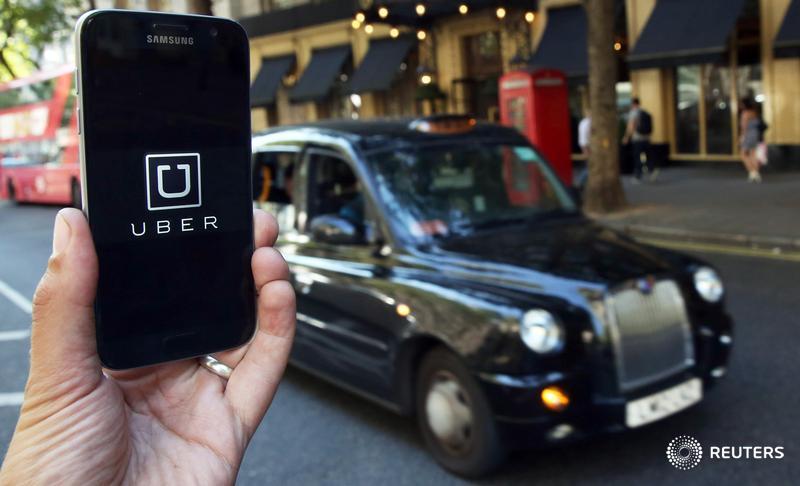Report to call for benefits such as sick pay and holiday entitlement

LONDON (Reuters) - A British government-commissioned report is to recommend that those working in the so-called "gig economy" for firms like taxi app Uber, receive rights such as sick pay and holiday entitlement, the BBC reported on Monday.
Last year, Prime Minister Theresa May set up a review into modern employment practices after an outcry over the increasing use of zero-hour contracts and the rising number of self-employed people working for apps such Uber and food courier Deliveroo.
Firms say the burgeoning "gig economy", in which people can work simultaneously for different companies without fixed contracts, gives greater flexibility to both them and their staff but such practices have been criticised as exploitative by unions.
In Britain, the self-employed have no entitlement to employment rights beyond basic health and safety and anti-discrimination laws. Regular workers receive entitlements such as annual leave, rest breaks and the minimum wage.
The review, due to be published on Tuesday, will recommend that ministers create a new type of worker called a "dependent contractor", the BBC said, granting greater entitlements.
The review will also call for firms to be obliged to show that a person working for them is able to earn at least 1.2 times the national living wage, which stands at 7.50 pounds an hour for the over-25s, by calculating the average number of tasks worked.
Britain's business ministry declined to comment on the report's findings when contacted by Reuters on Monday.
May is due to speak at the launch event on Tuesday where she will outline plans to pursue domestic reform despite her diminished authority. She is relaunching her leadership after a botched snap election which saw her lose her parliamentary majority.
Since taking office last year, May has tried to attract support from working class voters, who tend to back the opposition Labour Party, but she failed to win over enough support in June's national vote.




